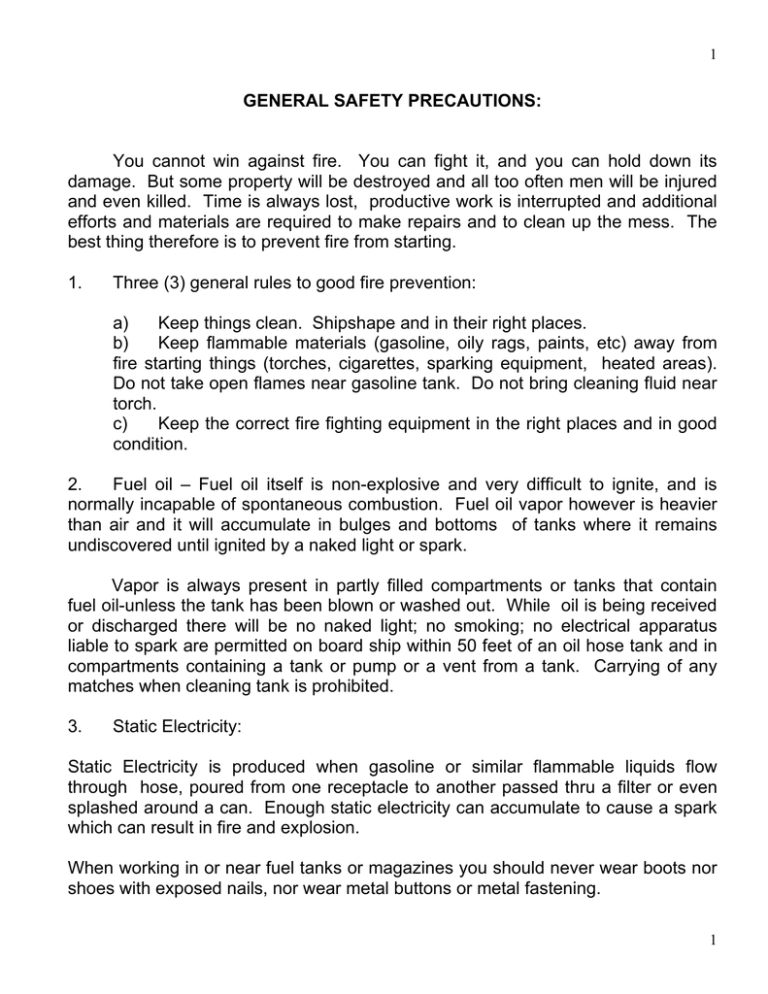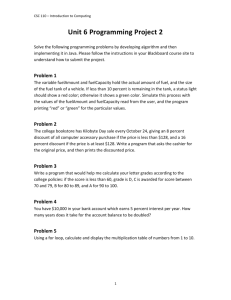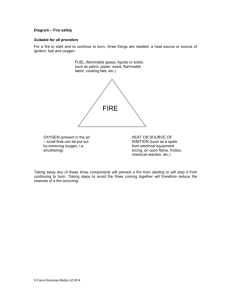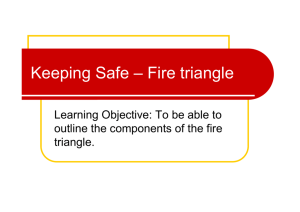GENERAL SAFETY PRECAUTIONS
advertisement

1 GENERAL SAFETY PRECAUTIONS: You cannot win against fire. You can fight it, and you can hold down its damage. But some property will be destroyed and all too often men will be injured and even killed. Time is always lost, productive work is interrupted and additional efforts and materials are required to make repairs and to clean up the mess. The best thing therefore is to prevent fire from starting. 1. Three (3) general rules to good fire prevention: a) Keep things clean. Shipshape and in their right places. b) Keep flammable materials (gasoline, oily rags, paints, etc) away from fire starting things (torches, cigarettes, sparking equipment, heated areas). Do not take open flames near gasoline tank. Do not bring cleaning fluid near torch. c) Keep the correct fire fighting equipment in the right places and in good condition. 2. Fuel oil – Fuel oil itself is non-explosive and very difficult to ignite, and is normally incapable of spontaneous combustion. Fuel oil vapor however is heavier than air and it will accumulate in bulges and bottoms of tanks where it remains undiscovered until ignited by a naked light or spark. Vapor is always present in partly filled compartments or tanks that contain fuel oil-unless the tank has been blown or washed out. While oil is being received or discharged there will be no naked light; no smoking; no electrical apparatus liable to spark are permitted on board ship within 50 feet of an oil hose tank and in compartments containing a tank or pump or a vent from a tank. Carrying of any matches when cleaning tank is prohibited. 3. Static Electricity: Static Electricity is produced when gasoline or similar flammable liquids flow through hose, poured from one receptacle to another passed thru a filter or even splashed around a can. Enough static electricity can accumulate to cause a spark which can result in fire and explosion. When working in or near fuel tanks or magazines you should never wear boots nor shoes with exposed nails, nor wear metal buttons or metal fastening. 1 2 In hazardous areas you must not wear outer – undergarments made of wool, silk, or synthetic textiles such as rayon and nylon. These materials can generate sufficient static electricity to cause ignition of inflammable products. 4. Electrical Equipment: The following requirements are particularly not applicable where work with electricity is being carried on. a) Gasoline and similar flammable cleaning fluids are not used on either energized or de-energized electrical apparatus. b) Alcohol is not used for cleaning equipment. It damages most types of insulating varnishes. c) Alcohol is not used for cleaning near electrical equipment from which a spark might be received. d) Oil, grease, carbon dust, etc can be ignited by electrical spark. Machinery is to be kept absolutely clean and free of all such deposit. Fumes from gasoline or other volatile flammables may be ignited by any of the following: a) b) c) d) e) Heat from a broken electrical lamp; Sparking in a motor; Ground or short in electric circuit; Spark from opening electric switches; and Static electric sparks caused by rubbing two things together. 2





